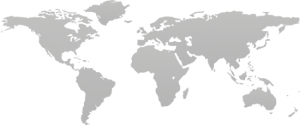Astrology as a Science
 No one can say precisely when astrology emerged. Man’s preoccupation with the skies began long before writing was invented. However, we know the fact that 6,000 years ago, Chaldean priests used watchtowers to make maps of the skies. Scientists found clay tablets, estimated to date from 3800 B.C., which record the motions of the Sun and the Moon with extraordinary accuracy. Acquainted as we are today with computer science, mathematics and logical conclusions, it is very hard for us to appreciate what ancient people achieved in this distant era, lacking the tools which we posses today.
No one can say precisely when astrology emerged. Man’s preoccupation with the skies began long before writing was invented. However, we know the fact that 6,000 years ago, Chaldean priests used watchtowers to make maps of the skies. Scientists found clay tablets, estimated to date from 3800 B.C., which record the motions of the Sun and the Moon with extraordinary accuracy. Acquainted as we are today with computer science, mathematics and logical conclusions, it is very hard for us to appreciate what ancient people achieved in this distant era, lacking the tools which we posses today.
Originally, astronomy and astrology formed one science and were collectively depicted as one word. Largely this was due to the fact that all ‘sciences’ at that time were very closely amalgamated with religion. Ancient people considered everything that happens in the physical world as a direct consequence of spirits and their deeds. This view included not only the influence of the planets upon men (astrology), but also their orbits, rotation and trajectories (astronomy), as well as their chemical composition or physical structure (chemistry and physics).
With the advance of materialism, astronomy and astrology formed two separate branches of science. Astronomy specialized in studying the physical movements of the planets and their chemical structure. Quite the contrary, astrology is not interested in the mechanical or chemical build-up of the planets at all, but it studies how the planets influence humans on the emotional and mental plane, which ultimately tends to shape their lives.
In antiquity, people noticed that the majority of stars were stationary in respect to each other. They called these stars ‘fixed’. They observed that there were five visible stars which in contrast to the others, were revolving about the Earth, confined to a narrow line. This line, called the ecliptic, loops around the Earth at a certain angle. In fact, the ecliptic is the same line traversed by the Sun, the Moon and the five visible stars.
Gradually astrologers divided the belt of the ecliptic into 12 sections and named each one of them after the fixed stars’ constellations that they observed ‘behind’ them. Most of them are named after animals, where specific characteristics best describe the energy, emanated from each constellation. This is how the Zodiac was born.
Furthermore, men observed that when a planet passes through a certain section of the Zodiac it triggers certain events. Babies born at this time share the same characteristics. In their constant travel along the ecliptic, planets move from one sign of the Zodiac to another. After some period of time they ‘return’ to the same sign where they were previously. Babies born in different years, but during the time, when a particular planet is passing through the same sign of the Zodiac, also show very similar traits, pertaining to the domain ruled by this planet.
For example, Mercury is the planet that rules the mind and communications. In the Greek mythology Mercury is represented by Hermes, who is always depicted as the ‘winged messenger’ of God or in other words he is the intermediate, the one, conducting the communication between Gods and humans. As another example Venus is the planet ruling the harmony, unison and love between people. Greeks called her Aphrodite, the Goddess of love – ideal, familiar and sexual. In the grounds of her temples there were groves where worshippers could make love.
By the position of Venus in the birth chart we can tell how that person relates to his or her partners. Let’s say Venus was in Scorpio, when a particular individual was born. Its presence there will intensify enormously the passion, sexual desires and jealousy of that individual, increasing his desire to ‘possess’ and control his partner. On the other hand, if Venus was not in Scorpio, but say, in Pisces, it will produce a person who is totally swayed by emotions and who is all too easily taken advantage of, because he will love and care too much about his partner. The same principle applies for all other planets. Each one of them is imprinting its mark on a particular domain of our life. In this way we are predisposed from birth in the way in which we think, feel, work, achieve, fail etc.
The main argument that we constantly hear from people, who do not believe in astrology is that people are far too complex creatures and cannot be divided simply into 12 categories. And indeed, I have to admit that the horoscopes appearing in the populist, tabloid newspapers and magazines did a lot of harm to the good name of astrology. This was done primarily through the wide broadcast of the misconception that according to astrology all people are simply divided into 12 groups. However, even a brief acquaintance with the main astrological techniques will convince the reader that the above statement has no grounds at all.
The ten planets of the Solar system (including the Sun and the Moon) can be in each one of the 12 signs of the Zodiac at the time of your birth. At the same time they can also be in each one of the 12 astrological houses, and their precise position will be determined by the daily rotation of the Earth around its own axis. So, we already have 12 times 12, times 10, which is 1440 combinations. But this is just the beginning. Each one of the ten planets can make about a dozen different aspects to each one of the other planets (some of these are positive and some of them are negative). In addition, each one of these aspects will have a different interpretation according to the sign and house position of the planets involved. It becomes clear that there are millions and even billions of possible combinations and that even 5 or 10 minutes difference in the birth time will produce people, who can be quite different from each other. I myself have made thousands of charts for the last 10 years. I never saw two people who have exactly the same birth charts and I never will.
The natal chart of a person is like a life road map. It describes the main strengths and weaknesses of the individual; it depicts the ego, the attitude towards money and possessions, the main sources of income and the way in which the mind operates and processes information. The attitude towards the parents can also be derived from it; if one of the parents had a particular bearing on the individual during his formidable years this will be clearly shown in the chart. Other factors that will show up are the attitude towards relatives, brothers and sisters, the conditions in the home where the individual grew up and the conditions in the home which he or she established later. The natal chart shows also the attitude of the individual towards sex, pleasurable romance and transient or permanent relationships. The chart will show impartially if the individual really possesses any psychic or healing abilities. A lot can be said also about the possibilities of distant travel, career direction and opportunities, group or social involvements and so on and so on. If the chart is studied in depth, it can shed light on previous incarnations of the individual and stresses the main tasks which have to be completed in this life. In two words, the personal natal report can give us answers about every aspect of our lives!
It is important to emphasize, however, that astrology should not be regarded simply as a prediction tool. This is because the primary task of astrology is about self-knowledge and not about deterministic fatalism! Knowledge is power and who possesses it has the chance of liberating himself from the spells of the stars. The stars compel, but do not impel. Their influence can be compared with the tides of the ocean. If the man decides to swim with the tides, he will be completely under the influence of the stars and in this case his life can be easily predictable. If, however, he decides consciously to swim against the tides, then he is exercising his free will and only then he becomes a true master of his own fate.
Astrology can help us enormously in this respect. Initially, it may seem that resisting the compelling force of the stars is an extremely difficult task. However, if a person is aware that he possesses certain negative traits and is constantly trying to correct them, then after some time this task becomes quite habitual. In fact, not long after the individual decides constantly to exercise his free will, he or she notices with surprise that their behaviour improves dramatically and they wonder how they could have acted otherwise before. All that is needed is some perseverance. I know many people, who after reading their natal report decided consciously to work on improving some of their flaws and indeed after some time they became completely different persons.
Ancient people knew as a matter of fact about the distinct correlation between the stars and certain areas of human lives. Today, we live in one of the most materialistic epochs in the history of the World. But even nowadays, unprejudiced people around the World recognize astrology as one of the most rewarding spiritual sciences, available to man. Its correlation with some other official sciences such as physics, mathematics and psychology is undeniable. The trajectory of the planets can be calculated with an extraordinary precision by modern computers and astrology charts can be drawn in a matter of minutes.
In this respect I cannot stress enough that astrology always was, it is today and it always will remain a science! The pure scientific approach of astrology, combined with the latest computer technologies is what it makes it different from all other forms of divination. The real art is, of course, the skilful and correct interpretation of the chart, which remains the property of just a small number of devoted astrologers. However, everyone with a clear heart, open mind and with a logical and scientific approach can learn how to interpret his own chart and the charts of his relatives and friends. You can learn it too, if you enrol in one of my astrology courses, for example.
The real strength of astrology, besides everything else, lies in its ability to change people’s lives by changing them from within. This can be achieved, provided that the following three conditions are satisfied:
- One is in possession of an accurate, professional, astrological birth chart.
- One has the ability to read his or her chart in an objective, unbiased, unprejudiced and emotion-free manner.
- One has an inner desire to improve oneself and is prepared to exercise his will-power in order to do so.
The ancient Greek proverb comes to mind as a conclusion for this article.
‘ Knowledge is Power ‘

 English
English Български
Български 中文
中文